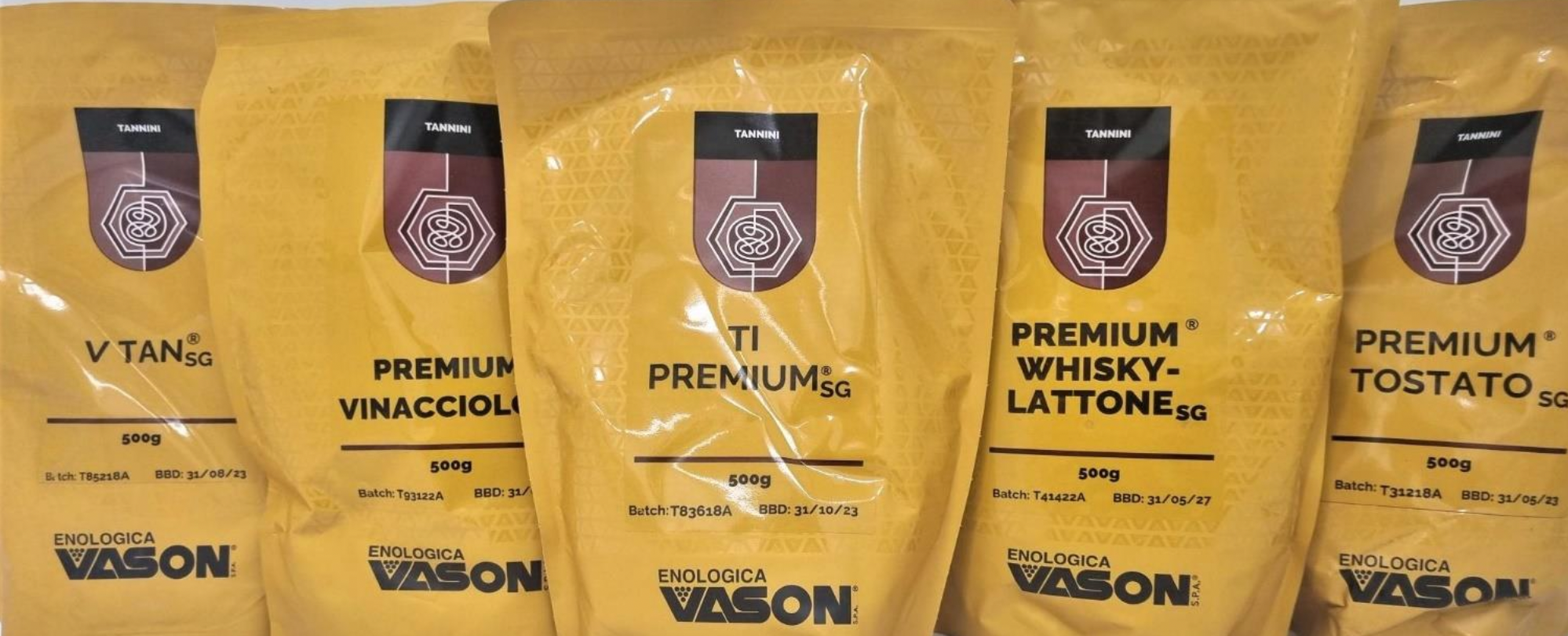Tannins
When tannins are added at crush, they can perform several functions in winemaking.
One of the most important roles of tannins is to help stabilize the color and flavor compounds in the wine. This is achieved by binding with the anthocyanins and other polyphenols present in the grape must, helping to prevent oxidation and degradation of these compounds during the fermentation and aging processes.
Tannins can also contribute to the mouthfeel and structure of the wine, providing astringency and a sense of weight and body on the palate. This can be particularly important for red wines, which require a certain level of tannin to balance out the fruit and acidity.
Furthermore, tannins can help to reduce the formation of sulphides during fermentation. This is achieved by binding with metal ions in the grape must, preventing them from reacting with the sulphur compounds and leading to the formation of unwanted volatile sulphur compounds like hydrogen sulphide.


